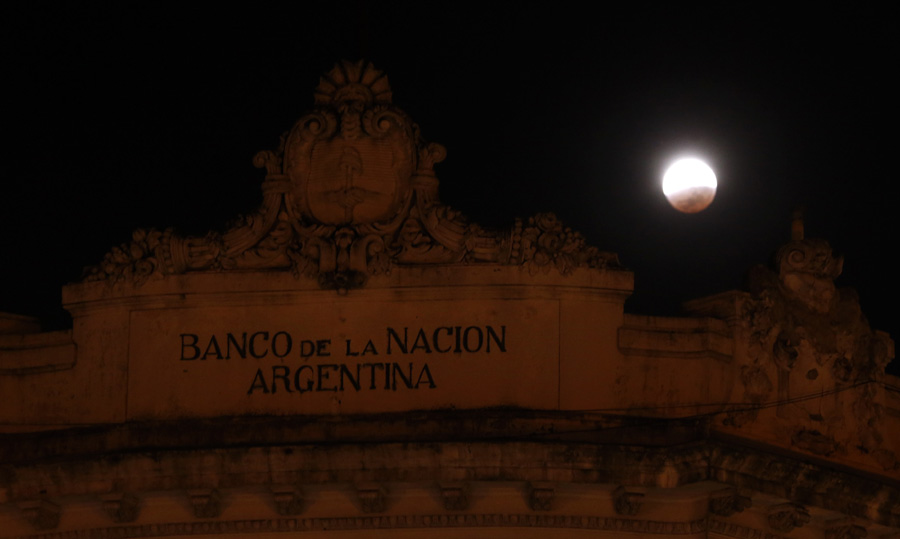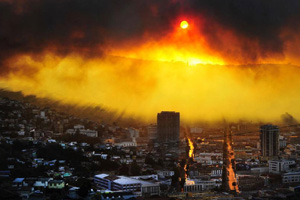 |
|
The moon is seen behind a National Bank of Argentina branch at the end of a total lunar eclipse Buenos Aires April 15, 2014. The lunar eclipse on Tuesday will unfold over three hours when the moon begins moving into Earth's shadow. A little more than an hour later, the moon will be fully eclipsed and shrouded in an orange, red or brown glow. Tuesday's eclipse will be the first of four total lunar eclipses that will take place between 2014 to 2015. [Photo/Agencies] |
CAPE CANAVERAL - Parts of the world saw a rare celestial event on Tuesday when the Earth's shadow fell across the moon, turning it orange.
The lunar eclipse unfolded over three hours beginning at about 2 am EDT, when the moon began moving into Earth's shadow. A little more than an hour later, the moon could be seen eclipsed and bathed in an orange, red or brown glow.
Depending on local weather conditions, the eclipse was visible across a swath of the United States.
Viewers from Florida to California and beyond went to viewing parties and social media and other websites to gawk and share photos of the so-called "blood moon".
A small crowd of stargazers who gathered on a roadside north of Los Angeles saw a sliver of still-illuminated moon and a reddish shadow cast across the lunar orb.
Others who were not so lucky took to Twitter to complain about cloud cover in New Jersey and Pittsburgh. An image of rain-streaked windows under impenetrable Atlanta skies could be seen. In the Pacific Northwest city of Seattle the skies were equally overcast.
The eclipse also was visible from Australia, New Zealand and all of the Americas.
Precise coloring depends primarily on the amount of volcanic ash and other aerosols floating in the atmosphere, SpaceWeather.com reports.
The celestial show was over by over by 5:30 am EDT (0930 GMT), NASA said on Twitter.
Eclipses occur two or three times per year when the sun, Earth and the full moon line up so that the moon passes through Earth's shadow.
Tuesday's eclipse will be the last full lunar eclipse visible from the United States until 2019, NASA said.
|
 The world in photos: April 7-13 |
 Sculpture 'Escape Velocity' |
 Coldest marathon |
|
|
|
|
|
|
|
|